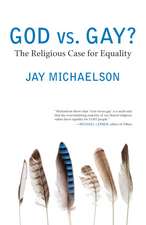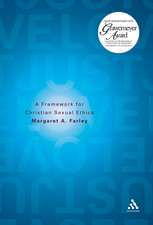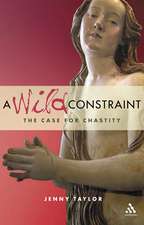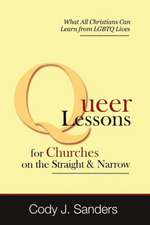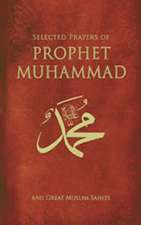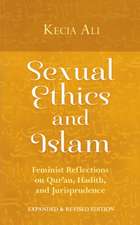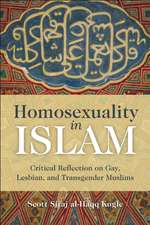Homophobia in the Black Church: How Faith, Politics, and Fear Divide the Black Community
Autor Anthony Stanford Cuvânt înainte de Khalil Gibran Muhammaden Limba Engleză Hardback – 13 mar 2013 – vârsta până la 17 ani
Preț: 356.01 lei
Preț vechi: 415.28 lei
-14% Nou
Puncte Express: 534
Preț estimativ în valută:
68.12€ • 72.85$ • 56.80£
68.12€ • 72.85$ • 56.80£
Carte tipărită la comandă
Livrare economică 17 aprilie-01 mai
Preluare comenzi: 021 569.72.76
Specificații
ISBN-13: 9780313398681
ISBN-10: 0313398682
Pagini: 232
Ilustrații: 2 bw illus
Dimensiuni: 156 x 235 x 23 mm
Greutate: 0.52 kg
Ediția:New.
Editura: Bloomsbury Publishing
Colecția Praeger
Locul publicării:New York, United States
ISBN-10: 0313398682
Pagini: 232
Ilustrații: 2 bw illus
Dimensiuni: 156 x 235 x 23 mm
Greutate: 0.52 kg
Ediția:New.
Editura: Bloomsbury Publishing
Colecția Praeger
Locul publicării:New York, United States
Caracteristici
Explains how the creation of the Office of Faith-based and Neighborhood Partnership and funds funneled to black churches have encouraged some of the nation's most powerful black religious leaders to dispense hateful rhetoric and malice towards black homosexuals
Notă biografică
Anthony Stanford is a freelance writer and columnist in the Chicago, IL area.
Cuprins
Foreword by Dr. Khalil Gibran MuhammadIntroductionONE: The Faith-Based SolutionTWO: Sexuality: The Weapon of ChoiceTHREE: Faith in MoneyFOUR: The Black LGBT StruggleFIVE: Same-Sex MarriageSIX: Don't Ask, Don't TellSEVEN: LGBTs Today and TomorrowAppendixes: Presidential DocumentsIndex
Recenzii
This book does an excellent job of providing readers with a window into how diverse groups, who share antigay attitudes, beliefs, and behaviors, became unlikely bedfellows within the context of President George W. Bush's faith-based funding initiatives and politics to collaborate and support one another in obtaining these funds. It can be used in political science, sociology, community clinical psychology, social psychology, and multicultural diversity courses at the graduate level (LGBT studies, ethnic studies) and in theology and/or divinity courses. Additionally, practitioners can use this book to gain valuable insights into the sociocultural and sociohistorical dynamics that are inherent within African American communities.



